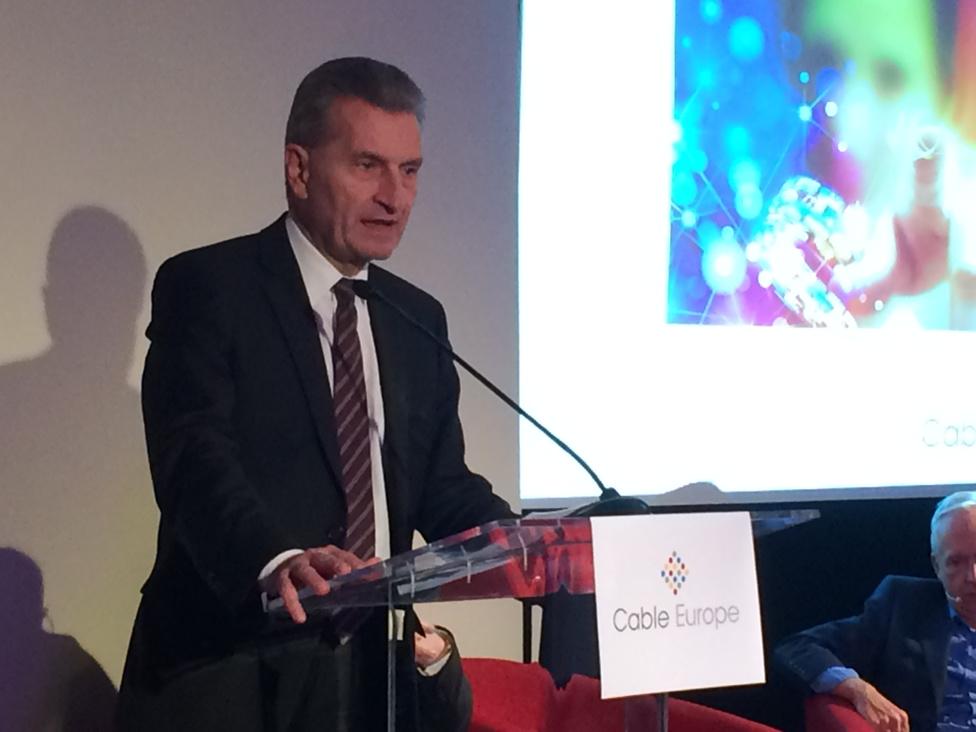
After more than 40 years of operation, DTVE is closing its doors and our website will no longer be updated daily. Thank you for all of your support.
EC sets out 100Mbps target for all European homes
The European Commission has set a target of providing connectivity offering a download speed of at least 100 Mbps, which can be upgraded to Gbps.
To accompany EC president Jean-Claude Juncker’s state-of-the-union address, the Commission also said that schools, universities, research centres, transport hubs, all providers of public services such as hospitals and administrations, and enterprises relying on digital technologies should have access to Gigabit internet and all urban areas and major roads and railways should have aaccess to 5G mobile cove rage. As an interim objective, theEC said that at least one major city in each EU Member State should have 5G by 2020.
The EC has called for a new European Electronic Communications Code including “forward-looking and simplified rules” that make it more attractive for companies to invest in new infrastructures, both in specific markets and across national borders. The Commission claims investments triggered by the new framework could boost EU GDP by an additional €910 billion and create 1.3 million new jobs over the next decade.
The new code will apply market regulation only where end-user interest requires it and where commercial arrangements between operators do not deliver competitive outcomes.
This is intended to reduce the burden of regulation on infrastructure builds where rival operators co-invest in high-capacity networks.
Other measures include longer radio spectrum licences coupled with more stringent requirements to use spectrum effectively and efficiently, and more converged spectrum policies at EU level.
The measures introduced today also include a 5G Action Plan to create a common EU Calendar for a coordinated 5G launch in 2020.
Günther Oettinger, Commissioner for the Digital Economy and Society, said: “Connectivity is a key prerequisite for Europe’s digital future: The Internet of Things, digitisation of industry, cloud, big data – all this demands secure and ubiquitous connectivity, with the best speed and quality. Europe has the ambition to lead on the deployment of 5G. It is time to move to a gigabit society and make sure all Europeans, whether in the countryside or in cities, can get access to a quality internet connection.”
The European Competitive Telecommunications Association (ECTA), which represents challenger telcos, welcomed the announcement an in particular measures to reinforce the Significant Market Power access regime currently in place, which holds incumbent operators to account.
However, it called for stronger measures to ensure physical access to incumbents’ specified network elements and facilities to ensure effective competition.
Cable industry body Cable Europe said it supported the EC’s connectivity ambitions.
“Two crucial drivers for growth work hand in hand. Firstly, that we in Europe are relentless in our pursuit of ever improving quality parameters. The European cable industry is investing, innovating, and leading the field in this regard. Secondly, that policy and regulatory developments support an investment-friendly environment in line with this ambition,” said Matthias Kurth, Executive Chairman of Cable Europe.
“Our vibrant and highly competitive industry thrives on infrastructure competition, with challenger networks like cable stimulating ever greater product investment and driving take-up. Regulatory incentives for investment, along with technology neutral policies, will pave the way to achieve our shared ambition for a digital Europe.”



